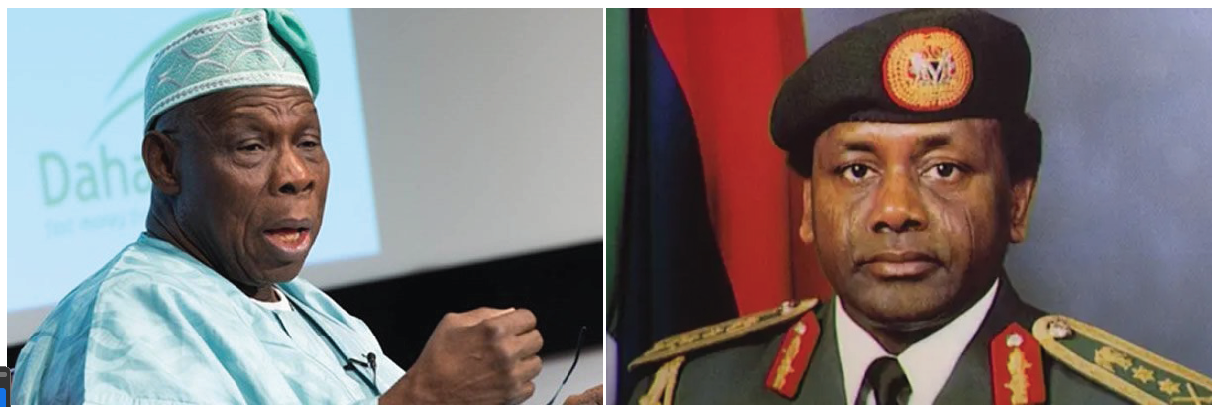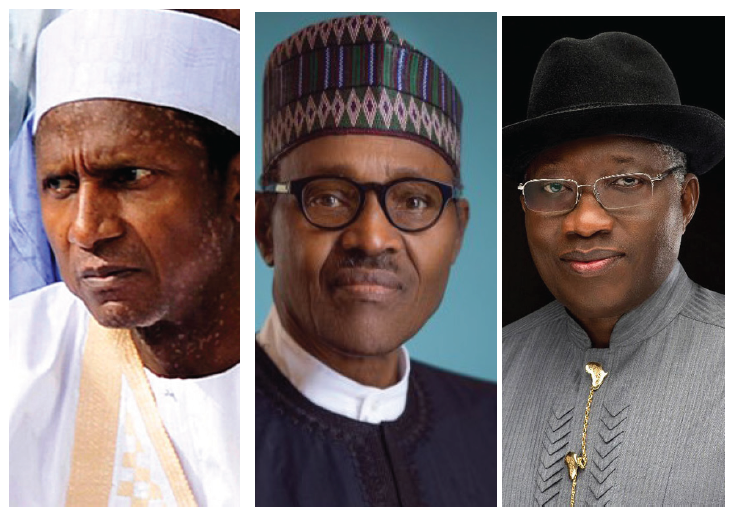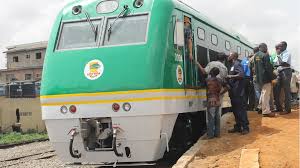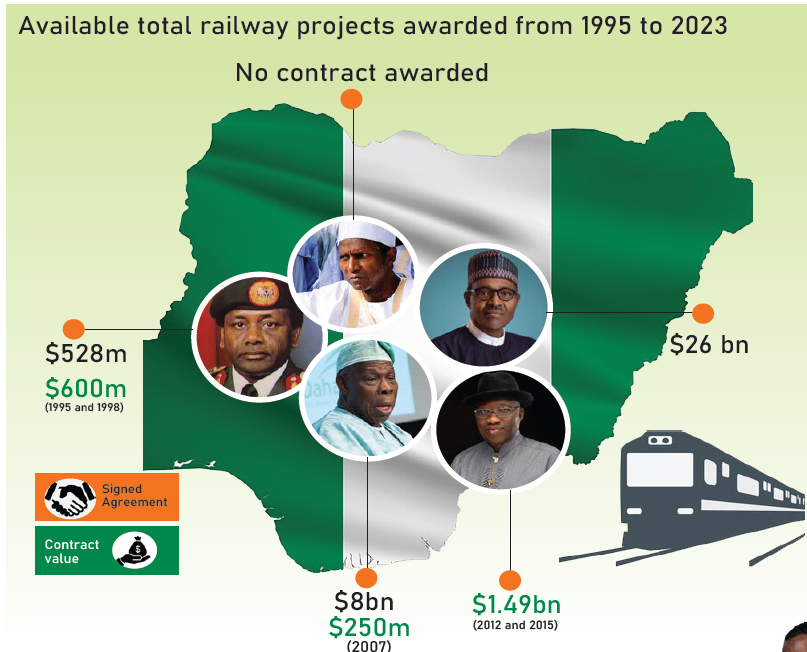-
Expert opposes law for states to run railways
-
Obasanjo contracted Railway of India in 1978
-
Abacha signed $528m agreement with CCECC
-
Spent $600m between 1995 and 1999
-
Can Tinubu sustain Buhari’s momentum?
By Obaike Odihue
There’s a deafening outcry over the dilapidated condition of roads across the length and breadth of Nigeria. It has been argued that there’s hardly any road in any part of the country that you can drive for 50 kilometres without running into a terribly bad spot. In some cases a whole stretch of the roads have failed and are simply unmotorable, but commuters have no choice but to ply as no alternative seems to exist. Consequently, precious lives and goods worth of high monetary value have perished in auto crashes mostly as a result of the pitiable state of these roads. Apart from poor contractual delivery by some contractors, the roads are generally believed to be over used, largely by, most times, overloaded heavy duty vehicles that constantly ply them with goods that ordinarily should not be transported by road.
It has, however, been posited that the panacea to the rapid damage of the roads and the resultant accidents on the highways is the revitalisation of the once vibrant but now moribund railway system. At seminars, workshops, media engagements on improving the transportation system in the country, the consensus opinions have always been the suggestion to go the way of railways.
To address this malaise, successive governments, since the 90s when the Nigerian rail system finally collapsed, have approached the issue with their different styles in order to reverse the ugly situation.
Currently, there are a number of new rail corridors in the country, including Ibadan-Apapa Port in Lagos, Abuja-Kaduna line which began operations in 2016, Abuja Light Rail network (2018) and Itakpe-Warri line which began in 2020. Former President Muhammadu Buhari who takes credit for some of these projects also approved a law to enable state governments make substantial investment in railway services. This law was, however, not without criticisms as some had argued that the states did not have the financial muscle to dabble into such investments that would require huge funds for sustainability.

Recall that the railway transport system began in Nigeria during the colonial period.The first railway line in the country was constructed in 1891 between Lagos and Ibadan under the British colonial administration. Its primary purpose was to facilitate the exploitation of Nigeria’s natural resources, such as tin, coal, and petroleum. The railway was also intended to promote trade between Nigeria and other countries, making the train port trade a major part of Nigeria’s colonial economy. The railway network expanded over the next few decades, and by the time Nigeria gained independence in 1960, there were over 3,000 kilometers of railway lines in the country.
No wonder like Lagos, Ibadan, Kano and then over time, rail transport became the backbone of the country’s import and export economy. It led to a host of villages and towns becoming large commercial cities – Enugu. By the early 1960s, the Nigeria railway carried on average 12 million passengers annually. The population then was 45.26 million, according to the 1962 census.
The transformation of the rail company itself had an impact on Nigerian society. From the late 19th century until 1955, Nigerian Railways was owned and managed by the colonial British government. It was transferred to a public corporation in 1955 when it became known as the Nigerian Railway Corporation. Nigerians assumed responsibility for managing the corporation in 1960. The railway workshops and stations became centres of multi-ethnic, multi-religious and multi-racial communities: oases of trading and socialising.
However, the fortune of the corporation began to decline rapidly thereafter. Though in 1964 the railway corporation achieved its best financial performance in the postcolonial era: revenue of about £16.30 million (US$19.90 million) and a working surplus of about £2 million (US$2.4 million), that was the best that was heard about thereafter. The subsequent nose diving from which the corporation has not recovered is said to be as a result of ageing infrastructure, general neglect and mismanagement.

Currently, the volume of freight transport by rail is believed to be increasing, but it is minuscule compared with the huge volume being carried by road and air transport, findings have revealed.
This misfortune is, however, not being overlooked as has been demonstrated by successive administrations in the country. These efforts to reorganize and modernize the railway infrastructure by successive governments dated back to 1978.
However, a railway historian, Tokunbo Aderemi Ayoola, said such efforts won’t work unless some issues are properly addressed. They include massive “government investment in existing lines and new ones, the railway corporation begins manufacturing some of its equipment and tools locally, the laws governing road transport are enforced to ensure there’s healthy competition in the sector, and foreign investors are encouraged to come in.”
He also disagreed vehemently with the law allowing states to build railway lines. “As to whether allowing states to build railway lines will revolutionise rail transport in Nigeria, I believe it won’t, for three reasons.
“First, it will be difficult for many of the 36 state governments to finance and manage railway development. Second, unless states develop regional railways together, individual urban and light railway services will run at a loss. Third, foreign investors would only be interested if they could make profits. And the most profitable aspect is freight railway.”

Checks have revealed that in 1978, General Olusegun Obasanjo as Military Head of State engaged the Railway of India Technical and Engineering Services to reorganise and rehabilitate the Nigerian Railway infrastructure. Similarly, the Late Head of State, General Sani Abacha followed with a three-year plan for the rehabilitation and revitalisation of the railway assets in 1995, and signed an agreement of $528m with China Civil Engineering Construction Corporation (CCECC). A total of $600m was spent between 1995 and 1998 by General Abacha.
Without any significant success from the existing contracts, the government again in 1999 engaged an international consultant to develop a 25-year strategic plan for the Nigerian Railway. The vision aimed to change the existing colonial narrow gauge routes to higher capacity standard gauge tracks across Nigeria.
Consequently, a budget of US$60 billion was prepared for the work, but it was delayed until 2007, Obasanjo’s last year in office as a two-term president. In 2006, the government had signed an US$8 billion agreement with China to design, construct and manage more than 1,315km of new and standard gauge railway from Lagos to Kano within four years. The capital for the project would come from foreign exchange from the sale of petroleum and a US$500 million concessionary loan from the Chinese government. The Obasanjo administration paid paid a US$250 million mobilisation fee to start the project in 2007.
Unfortunately, the project ran into serious political headwinds after Obasanjo left office in 2007. His successor, Musa Yar’ Adua, suspended the contract, alleging that proper procedures hadn’t been followed. The same Yar’Adua government decided to rehabilitate the existing narrow gauge network. But, in a sudden about turn, it decided to resurrect the abandoned 25-year modernisation project earlier suspended.
The search for remedy for the ailing Nigeria Railway continued. In July 2012, the Goodluck Jonathan government approved US$1.49 billion for the Lagos-Ibadan double track railway line modernisation project which was scheduled for completion in the second half of 2015. The project was eventually completed in June 2021.
These improvements led to an increased number of passengers, from 1.28 million a year to about 5 million in 2014/2015. In 2021, 2.71 million passengers used the trains and 3.21 million did in 2022.
Still, there are several unfinished railway projects strewn around the country. President Buhari-led administration had embarked on the construction of six major railway projects across the country expected to gulp $26 billion at completion.
The projects included the Lagos-Kano standard rail line project covering 1,402 kilometres awarded at the cost of $2.3 billion to the China Civil Engineering Construction Corporation (CCECC); the Abuja-Itakpe-Warri rail line project with a contract value of $3.90 billion being constructed by China Railway Construction Corporation (CRCC), CCECC, Julius Berger, Sinohydro Corporation and General Electric; and the 1,443 kilometres Port-Harcourt to Maiduguri rail line project at a contract value of $3.2 billion.
Others are the Kano-Maradi and Kano- Kaduna standard-gauge railway projects; the Lagos-Calabar Coastal Railway Project II at a contract value of $11.10 billion covering 650 kilometres, as well as the 334 kilometre Ogun Intercity Railway Line with contract estimated at $3.51 billion to be constructed by CCECC.
Buhari’s Minister of Transportation, Rotimi Amaechi had projected that Nigeria needed nothing less than $33b to cover the entire country with rail transport.
Mounting the saddle as Buhari’s successor, President Bola Tinubu said he would continue with Buhari’s legacies and analysts believe that railway infrastructure development should be one of them, especially given its strategic centrality to the country’s transportation needs.
On a visit to China recently where he met with CCECC officials, President Tinubu avowed that he would complete the Ibadan-Abuja, Kaduna-Kano railways. He also signed an MoU with MPH Rail Development (UK) Ltd recently for Port Harcourt-Abuja rail line. The President also launched the Lagos Red Line rail project earlier this year as part of activities to mark his first year in office.
Some are, however, of the opinion that the prominent attention and activities generated around railways development is currently missing. Currently, activities around rail tracks and terminals are quite low. Accordingly, it has been suggested that Tinubu and his ministers should shift attention from the ambitious and controversial coastal highways to the railways where a huge revenue harvest is waiting.







